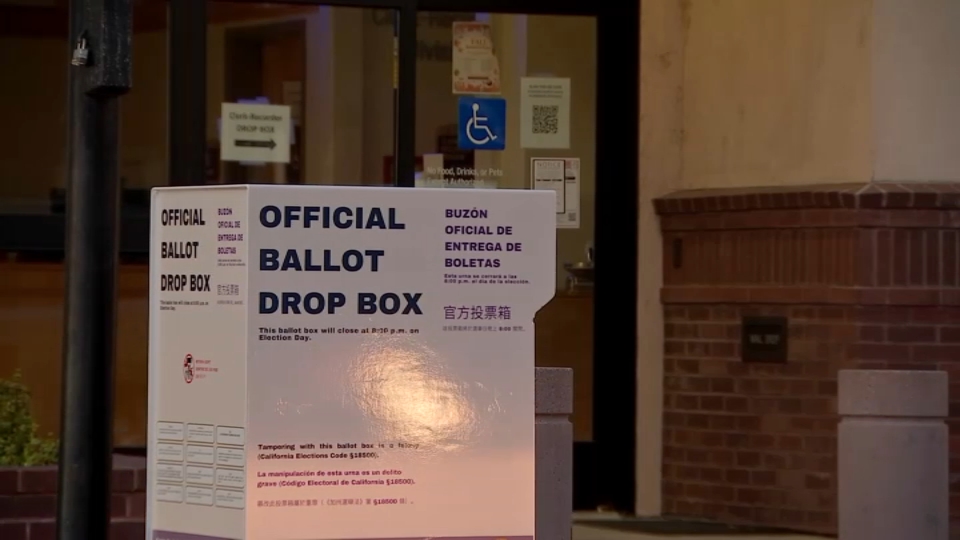California may have had more on the line than any other state when it came to Thursday's Supreme Court ruling on President Barack Obama's Affordable Care Act.
The nation's highest court ruled in a 5-4 decision that the individual health insurance mandate at the center of Obama’s landmark health care law, saying the requiring Americans to have insurance is permissible under Congress’ taxing authority.
And California could stand to be the most heavily impacted state in the nation on the ruling.
While 25 states have publicly announced their opposition to what opponents call "Obama Care," California has already started implementing certain provisions of the law. And the state could be the biggest beneficiary of the law by pulling in an estimated $15 billion.
You can download a PDF copy of the ruling here.
And with more than 7.2 million Californians, or about 19 percent of the state's population, uninsured, the state has its reasons for trying to be a model for the rest of the country.
Texas has the second highest number of uninsured residents at 6.2 million, or about 25 percent of its population.
California has already barred insurers from refusing coverage for children with pre-existing conditions and young adults are already allowed to stay on their parents' health care plans until the age of 26.
Professor Peter Keane, who teaches constitutional law at Golden Gate University Law School in San Francisco, said Thursday's decision will have an enormous impact on the lives of Californians.
"What it does it continues the provisions of the health care act that people find significant," he said. "This has enormous effect on the health care in California."
And that is important for some working in the medical field.
As horrible as it may sound, Dr. Caroline Hastings, a pediatric oncologist at Children’s Hospital in Oakland, said she personally has known "hundreds" of children with cancer who have not received the care they need because their parents’ insurance companies have treated cancer as a pre-existing condition and denied coverage.
Still, while Hastings was thrilled with the Supreme Court decision, she was skeptical of how it would actually play out.
"It’s great,” she said. “But how is it feasible? What insurance product will be available that is comprehensive and affordable? Or, I worry that the insurance that will be affordable will be like not having insurance at all."
Cities such as San Francisco have their own universal health care measures that are up and running in some form.
While the historically liberal state has people on both sides of the issue, Sen. Dianne Feinstein applauded the decision as a major vistory for California.
"Because of today’s decision, California will receive an estimated $14.5 billion in federal funds designated to increase insurance coverage—including an estimated $5.5 billion annually to help low and middle-income residents purchase insurance in the exchanges and an estimated $9 billion a year to insure newly eligible Medi-Cal beneficiaries," she said, while acknowledging while the ruling was controversial.
Democratic House Minority Leader and San Francisco resident Nancy Pelosi took to Twitter to express her delight over the ruling.
"Victory for the American people!" She wrote. "Millions of American families and children will have certainty of health care benefits (and) affordable care."
Pelosi said she was scheduled to appear on NBC's "Meet the Press" on Sunday to discuss the historic Supreme Court ruling.
Local
Beyond California, Keane said Thursday's Supreme Court ruling changes 200 years of how the Constitution's Commerce Clause, which has historically been interpreted to allow Congress to regulate anything that impacts interstate commerce, has been implemented.
"It's one of the landmark rulings of the supreme court over the course of the last two centuries because it completely upends the new deal court under (President Franklin) Roosevelt," he said. "Justice (John) Roberts sort of turned it on its head."
The ruling will be one that will defines Roberts' career, according to Keane. Especially since Roberts is a conservative justice who was appointed by President George W. Bush in 2005 after the death of Chief Justice William Rehnquist.
Roberts was largely expected to vote in line with the four other conservative justices who ruled against the health care measure Thursday.
Senior Editor Lisa Fernandez contributed to this report.



